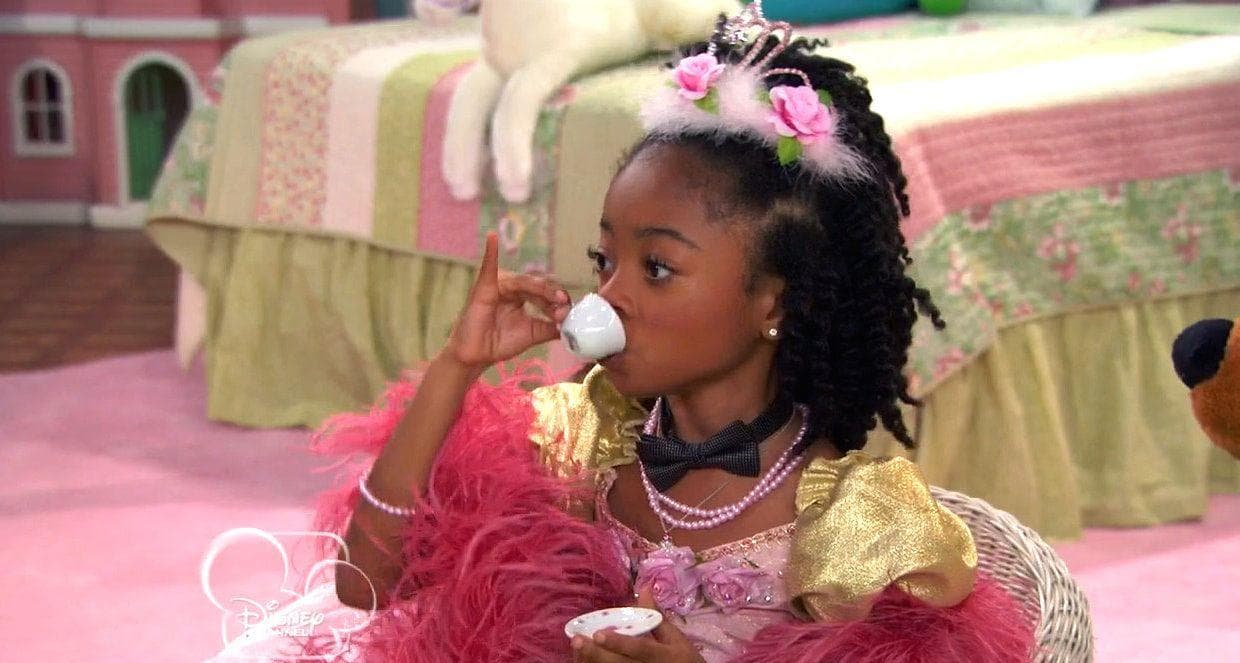-
(#1) Carrie Mathison
- Homeland
TV Show: Homeland
Besides her ugly crying and infinite badassery, what makes Carrie stand out in the TV world is her struggle with mental illness. As a CIA officer dealing with bipolar disorder, her illness is an important part of what makes her who she is. That’s obvious from the very first episode of the show, when we find out she’s hiding her illness from the CIA because she’s afraid she’ll get fired. As the series progresses, we get to witness Carrie not only with her condition under control due to a strong support system and medication, but also off her medication and experiencing psychotic episodes.
While Carrie is so much more than her disorder, the illness is a huge part of her life, and seeing her deal with the symptoms helps viewers better empathize with and understand her complex character.
How Accurate Is It?
When it comes to Homeland’s portrayal of bipolar disorder, some viewers praise the show for its accuracy, while others think it sensationalizes the illness for the sake of melodrama.
Psychology Today, for instance, writes that the depiction of mental illness is pretty accurate: “What makes Homeland work so well in terms of its psychiatric realism, is that Carrie’s illness is an aspect of her character and a realistic part of the story, rather than her illness being the story and inaccurately portrayed. This works because in real life people, who suffer from mental illnesses like bipolar disorder, can and do lead lives that are normal and productive, rather than sensationalized and distorted.”
Meanwhile, a GQ article calls out the show’s BS: “Homeland’s highs and lows are frequently about the viewer’s opinion of Carrie at that moment, not necessarily Carrie’s state of mind. You have to wonder how much interest Homeland really has in bipolar disorder if it’s not a narrative goldmine.”
On Reddit, viewers have varied opinions, as well. One of them thinks the show does a great job: “I grew up in a household with a bipolar parent. And I can absolutely tell you that, from my perspective at least, this show, and Claire Danes both have f*cking nailed what living with Bipolar disorder is like. Both for the sufferer and those in that person's immediate circle.” However, another user says the portrayal has its faults: “The Manic episodes that she's experienced (definitely in Season 2) were pretty consistent with reality, but here Depressive episodes are few and far between and played very monochromatically. Definitely not the range that even moderate m/d would present.”
-
(#2) Gretchen Cutler
TV Show: You're the Worst
For a comedy, You’re the Worst tackles some complex and serious issues. It was clear from the very beginning of the show that the characters all have their own battles to fight, but the series took its time to really dive into their struggles. In Season 2, we find out that one of the protagonists, Gretchen, is clinically depressed. We see not only how the illness affects her, but also how it affects her relationships – mainly the one with her boyfriend, Jimmy.
While the show has often been celebrated for being anti-romcom, it got some serious praise for talking about depression with caution and grace. When Gretchen admits that “her brain is broken,” the character’s dysfunction stops being purely funny. Without being overdramatic, You’re the Worst takes us beneath Gretchen’s sarcastic surface and makes us understand where all that dysfunction comes from.
How Accurate Is It?
On Reddit, people seem to approve of the way You’re the Worst deals with depression. “Their portrayal of clinical depression is extremely realistic for a show of this genre and I think they're doing a great job with Gretchen and this whole season (n.r season 2). I loved the show when it was funny, but I'm glad they took a few episodes to address this very common issue with maturity and not make it a cheap joke,” one user writes.
Another adds: “There's a scene where she goes to an overlook in the middle of the night to bawl her eyes out in her car so she doesn't wake her boyfriend and I was just silently crying next to my husband. But not because it made me sad, like I said. It was some weird feeling of vindication (maybe not the right word?) or relief that I wasn't the only person on the planet who had felt that way before.” Following suit, the LA Times went as far as to call You're the Worst's “There Is Not Currently a Problem” episode TV’s “best depiction of clinical depression ever.”
But depression can affect people in different ways, and Gretchen’s portrayal likely didn’t work for everyone. That being said, complaints about the storyline aren't about the depiction of the illness per se, but more about the show ‘not being so funny’ anymore. As one viewer puts it: “The depression storyline has been the biggest slog in the world and goes completely against the tone and humor that made season one so great. You can have pathos and explore emotional issues without it being a narrative dirge and unfortunately, this season has been utterly consumed by the depression storyline.”
-
(#3) Jessica Jones
- Marvel Universe
TV Show: Jessica Jones
As a show about trauma, Jessica Jones doesn’t shy away from dealing with the consequences of going through something awful. The titular character of the show isn’t experiencing what you might call a "speedy recovery" after her time with Kilgrave. She’s been raped and controlled by the villain, so she’s now suffering from severe (and diagnosed) PTSD. Jessica may be a super-human, but she’s emotionally fragile and does her best to cope with the aftermath of Kilgrave using her as his plaything.
Coping in this case includes setting up a support group for Kilgrave’s victims, repeating a mantra she learned from a therapist, turning to alcohol to dull her senses, and, eventually, confronting her rapist. Even super-humans are susceptible to the effects of trauma, and Jessica’s illness is much more than a justification for her to become a gritty and dark hero.
How Accurate Is It?
For the most part, people tend to agree that Jessica Jones does a good job at portraying PTSD and the devastating effects of dealing with a trauma. “I had a very difficult time watching the pilot episode. It makes me very uncomfortable because of how well they are portraying PTSD symptoms. It's a good thing, but still hard to watch,” one Reddit user writes.
Another user agrees, proclaiming: “Hands down, Jessica Jones is my favorite Marvel endeavor to date (and I'm a huge fan of the Marvel franchise). I really can't believe how well they captured the disorder in all its many facets (I really identified with the substance abuse as a medicator for symptoms), and yet the story is one of hope, of persevering over near-impossible circumstances."
The only thing that seems to annoy viewers is the way in which she finds the strength to eventually recover. In one fan's opinion, “[taking] back your control isn’t one moment that lets you kill your demons. It’s screaming back at them every time they come out to play. It’s having your friends and family whisper the truth in your ear when all you can hear is lies. In my mind, for Jessica to have defeated Kilgrave, she needed to have stopped hating herself first. And she can’t do that alone or by a sheer act of willpower. That’s a lot harder than killing the bad guy."
-
(#4) BoJack Horseman
TV Show: BoJack Horseman
Who would have expected to get an accurate portrayal of clinical depression from an animated show? And yet, BoJack Horseman, with its cult following and complex storylines, may just be the saddest funny show ever.
That’s mainly because it allows its main character to succumb to his demons more often than it lets him enjoy his success. The creators don’t tell you flat-out that BoJack is depressed. Instead, they let viewers peel back the various layers of the deeply unhappy hero until there’s no doubt that he’s struggling with mental illness. As they put it, “the goal was never like, let's really create an expose, let's really investigate this kind of thing, let's diagnose BoJack in a certain way. I think it was more about just trying to write this character truthfully, and taking him seriously.”
During the show, BoJack is a has-been actor who collapses into a black hole of alcoholism, depression, narcissism, and self-destruction. He struggles to get better and fails over and over again, proving that recovering from mental illness isn’t only about willpower. It’s about having a strong support system, making better decisions on a daily basis, and getting help. We don’t see BoJack lying around all day. Instead, we see him struggling to figure out how to overcome his shortcomings.
How Accurate Is It?
The majority of BoJack Horseman fans and critics have praised the way in which the show tackles depression.
“I never saw my depression on TV or in movies. […] So when I finally really saw depression as I knew it, a direct reflection of my illness, not an exaggeration and not an underplay, I didn't quite know how to feel. This is so intense, I thought. This is so necessary. But, as the show progressed, I began to notice not only the truth about depression depicted in BoJack Horseman, but the behaviors as well. I started asking myself, more and more often: Do I do that? Is that me?” Rosey writes for XO Jane.
“It is nice to see a show portray how I feel though. Self-sabotage is a recurring theme in my life and season 2 was just perfect,” a Reddit users agrees. Fans even found other disorders portrayed in the series. “I firmly believe BoJack suffers from adult ADHD. I have it myself, as well as my dad and boyfriend having it, so I am very familiar with the symptoms and presentation,” another Reddit user points out.
-
(#5) Hannah Horvath
- Girls
TV Show: Girls
The hip HBO series Girls didn’t shy away from taking on mental illness when it delivered that brutal and memorable Q-tip scene in Season 2. And yet, while Hannah’s OCD really spiraled out of control at that moment, the entire season focused more or less on her mental health. We saw her coping with a resurgence of her OCD symptoms in a convincing and nuanced manner, which isn’t surprising when you think about the fact that Lena Dunham suffers from OCD as well.
The Q-tip episode remains an important one because it doesn’t treat OCD like something “cute.” Instead, it shows how horrible life can get for people dealing with the disorder. Hannah isn’t a particularly likeable character, but seeing her struggle was devastating nonetheless.
How Accurate Is It?
When it comes to how ‘real’ Hannah’s OCD portrayal is, opinions vary. The depiction was applauded by The Daily Beast: “it appears Dunham is willing to portray real OCD, not the scrubbed and kinda fun version where people are cleaning their hands at inopportune times or else hopping over cracks in the sidewalk.”
Meanwhile, a psychiatrist interviewed by Vulture disagreed: “[many] people do manifest OCD in childhood, and it can go into remission and can come back — so that was plausible. But it was very zero-to-60 with Hannah, and then back down to zero by the start of the season. I mean, it's not hugely consistent with a lot of her character. Hannah doesn't have a lot of those minor OCD-like traits when she's functional.”
-
(#6) Adrian Monk
- Monk, Monk Universe
TV show: Monk
Pop culture’s most prominent depiction of OCD came in the form of Adrian Monk, the police consultant who suffers from obsessive-compulsive disorder (OCD) and multiple phobias. The show ended in 2009, so this was way before people started to be more open about mental illness, so the sheer fact that the protagonist of a popular TV show was dealing with mental illness as part of his day-to-day life was kind of a breakthrough.
Moreover, it seems that The Anxiety Disorders Association of America (ADAA) has supported Monk and championed its help in increasing OCD awareness. ADAA CEO Jerilyn Ross said, “Even as a comedy, the show demystifies this mental illness respectfully and makes people aware of what someone suffering from OCD experiences.”
Tony Shalhoub’s performance as Adrian Monk was convincing and compassionate; and yet, the portrayal of living with OCD wasn’t always perfect. Still, as WebMD once pointed out, the show became a source of empathy and inspiration for millions of Americans suffering from OCD.
How Accurate Is It?
The main problem with Monk was that Adrian’s disorder was treated more like a gimmick. It encouraged viewers to laugh at it, without portraying the terror and shame often associated with OCD.
As one Quora user points out, “The portrayal itself is reasonably sympathetic, and sometimes Shaloub gives us some insight into how the character is genuinely suffering, but as a diagnostic guide to OCD, it's not very useful.” A Reddit user was annoyed with the marketing campaign for the show: “I remember when USA was marketing this, they called him the "Defective Detective." Which never sat right with me. Calling someone with a real mental illness (even if it is a fictional character) subhuman just sends a terrible message out to people.”
Fletcher Wortmann, author and individual diagnosed with OCD, thought the show dealt with “hilariously inconvenient, painfully superficial, improbably untreatable OCD, which always involves counting and cleaning (because those are Hollywood’s very favorite OCD symptoms), and which can’t be managed, or even explained accurately to exasperated bystanders, because then there couldn’t be a show.”
Another Quora responder, however, disagrees: “I think he is a very accurate character. It depends on the degree of OCD but there are more severe cases.” The same goes for a viewer who thought the portrayal was great - “It does a great job of mixing comedy and raising awareness without being insensitive. Although Monk's character has many compulsions that are funny at times I think that ultimately everyone respects him because of how good he is at his job. I also think that the show is great because it shows positive sides to OCD. Often times Monk's compulsions are the reason that he is able to solve crimes. Even though he struggles at times, at the end of the day he is someone to look up to.”
-
(#7) Max Braverman
- Parenthood
TV Show: Parenthood
Parenthood was beloved for a plethora of reasons, but one of the most important things the show did was talk openly about autism and showcase how a kid with Asperger’s Syndrome navigates everyday life. Heartbreaking at times, the story didn’t only show Max’s struggles. It also focused on how the entire family was affected by Max’s disorder.
Executive producer Jason Katims has a son with Asperger's, so the fact that the story felt incredibly raw at times shouldn’t be surprising. We get to witness Max’s evolution from the first time his parents figure out there’s something wrong until he becomes a teen, and each developmental stage comes with its own set of struggles. By telling Max’s story, Parenthood has depicted a journey never before seen on network television.
How Accurate Is It?
Generally speaking, the show’s portrayal of living with Asperger’s Syndrome has been praised by critics and viewers alike. “As someone who felt like an outsider to the world of autism, Max helped me normalize my own experiences with my now brother-in-law. He showed me ways to relate to Michael, and affirmed that simply because Michael didn’t want to hug me or ask me about my life, it didn’t mean that he didn’t love me,” one viewer wrote.
But, since Max is only one character, not everyone on the autism spectrum can relate. “He's probably plenty accurate in some ways for a specific type of person on the spectrum. The problem is that it's a stereotype. It's sort of like asking how accurate a depiction of gay men are Cam and Mitch on Modern Family. Autistic people are people too, and people are unique. Some autistic people are young boys with very similar autistic traits to Max's, but a whole lot of them aren't,” one Redditor thinks.
At the same time, others didn’t like how rude Max becomes as the series progresses. “I'm a big fan of the NBC TV show Parenthood, in no small part because of the Max Braverman character, who has Asperger’s (the actor himself does not). At the beginning of the show, I felt I could relate to the behavior and the challenges. Now, however, I feel his rude behavior, on most occasions, makes him seem unkind.”
-
(#8) Sherlock Holmes
- Sherlock, The Hound of the Baskervilles, Sherlock Holmes, The Red-Headed League, Comedy Playhouse, Elementary, Terror by Night, Murder by Decree, The Woman in Green, Sherlock Holmes and the Secret Weapon, Sherlock Holmes and Dr. Watson, O Xangô de Baker Street, The Adventure of Sherlock Holmes' Smarter Brother, Sherlock Holmes and the Leading Lady, Sherlock Holmes 3, Sherlock Holmes: A Game of Shadows, Sherlock Holmes, Crazy House, I Am Bob, The Triumph of Sherlock Holmes, Without a Clue, The Masks of Death, Sherlock Holmes and the Deadly Necklace, Sherlock Holmes in Washington, The Adventures of Sherlock Holmes, Silver Blaze, Sherlock Holmes and the House of Fear, The Great Mouse Detective, The Spider Woman, The Return of Sherlock Holmes, The Seven-Per-Cent Solution, Sherlock Holmes in New York, Sherlock: Case of Evil, Incident at Victoria Falls, Sherlock Holmes, Sherlock Holmes and the Voice of Terror, Sherlock Holmes Faces Death, The Scarlet Claw, Sherlock Holmes and the Case of the Silk Stocking, The Private Life of Sherlock Holmes, The Speckled Band, Pursuit to Algiers, The Pearl of Death, The Sign of Four, Young Sherlock Holmes, The Hound of the Baskervilles, The Hound Of The Baskervilles, Dressed to Kill, Sherlock Holmes, The Missing Rembrandt, 1994 Baker Street: Sherlock Holmes Returns, The Sleeping Cardinal, Sherlock Holmes Universe
TV Show: Sherlock
“I'm not a psychopath, I'm a high-functioning sociopath,” Sherlock says a couple of times during the acclaimed BBC series. He’s a brilliant, but antisocial consulting detective, so his assessment of his very own mental health shouldn’t surprise anyone. However, as we’ve seen a few times over course of the show, the character is also capable of true empathy and altruism, which is why thing can get confusing.
Sure, Sherlock has trouble with relationships, and one could argue that Watson is his only real friend. But Sherlock shows Watson intermittent kindness, and the series makes it pretty obvious that he cares about others as well. And yet, it seems important for the detective to be recognized as a sociopath, albeit a high-functioning one.
How Accurate Is It?
Well, doctors tend to agree: Sherlock’s not a sociopath. “It’s not that he doesn’t experience any emotion. It’s that he has trained himself to not let emotions cloud his judgment - something that he repeats often to Watson,” psychologist Maria Konnikova thinks. “I see the modern Sherlock as portrayed by the BBC as more very high functioning autistic than sociopathic. He never seemed sociopathic to me,” a Quora user chimes in.
However, there are a few viewers who buy into the premise that Sherlock has all the traits of a sociopath. On Sociopath World, a user comments: “This modern Sherlock Holmes does fit the symptoms attributed to a sociopath. Including an apparent lack of guilt and emotion.”
-
(#9) Edgar Quintero
TV Show: You're the Worst
Gretchen isn’t the only one dealing with mental illness on You’re the Worst. Jimmy’s roommate Edgar is a veteran who has been struggling with PTSD from the very beginning of the show. In the first two seasons, we saw him at his worst when he was living on the streets, but we also saw him navigating the Veterans Affairs office to get his medicine and trying to live with PTSD as normally as possible.
In Season 3, however, Edgar’s disorder gets center stage after he gives up his medication altogether. It makes for a devastating and raw episode, as Edgar gets treated poorly by his best friends, struggles to fall asleep, becomes paranoid, and even contemplates suicide. The show’s creator always tackled Edgar’s PTSD with sensitivity, but in “Twenty-Two” he gave us an incisive glimpse into the character’s private mental hell. Add in the fact that the episode title refers to the number of U.S. veterans who commit suicide daily, and you’ve got yourself a heartbreaking half-hour of television.
How Accurate Is It?
Once again, the Internet seems to applaud the way You’re the Worst deals with mental illness. “I know combat vets with real problems and I thought they did a really good job of capturing what some of them have told me they go through every day. Especially the BS and hoops you have to jump through at the VA, they nailed the part of the MD's and employees attitudes and always shoving medication down your throat,” one Reddit user writes.
Another agrees: “I'm not a veteran, but I do have some PTSD as a result of witnessing a violent death. This episode gets it right. The constant anxiety, paranoia, and irrational fear are portrayed perfectly. I hope that none of the showrunners are drawing on personal experience.”
-
(#10) Maria Bamford
TV Show: Lady Dynamite
Lady Dynamite may not be the kind of show that appeals to a mass audience, but there’s no doubt it has plenty of charm. The protagonist, Maria Bamford, who plays a fictionalized version of herself, confronts the stigma often associated with mental illness head on. The actress never hid her struggle with bipolar II disorder or her subsequent hospital stay. The exaggerated version of herself she plays doesn’t either. The result? A refreshingly honest (and sometimes funny) depiction of mental illness, the kind we rarely get to see in a TV series.
What’s great about the show is that it deals with the more mundane aspects of living with mental illness. For instance, she once has very low levels of energy after changing her medication and can't do her job. Or she finds herself struggling to maintain relationships. Overall, she just wants to find a balance between mental health and her career, which is something a lot of bipolar people can relate to.
How Accurate Is It?
A lot of viewers found Lady Dynamite to portray bipolar disorder honestly and in a deeply relatable way. “Thank you for LD. It's really relatable and is helping me see the light with my anxiety and depression. I needed this,” one Twitter user writes.
“It does a good job capturing some of the feelings that go along with having to restart your life without being overly maudlin about it. I just find it nice to have what seems to be an open, honest, and comedic look at what life with bipolar disorder can be like. I know it's not representative of everyone's experiences but it hits pretty close to home for me,” someone else writes on Reddit. “It shows off Bipolar in a way that's never been done (or at least I've seen). Another Redditor points that "[it] also talks about unwanted thoughts, which I thought was pretty fantastic too!"
On the other hand, it’s clear that the show isn’t for everybody. “I watched the first episode but I didn't really like her character. I feel like this makes me a bad bipolar person, I really wanted to like it,” a viewer thinks.
-
(#11) Ryan Newman
TV Show: Wilfred
Critics have called Wilfred a whimsical study of mental illness, and they have a point. The main character, Ryan, suffers from depression with periods of mania and schizophrenia. He hallucinates his neighbor’s dog Wilfred as a man wearing a dog suit. And while that does lead to some comical situations, the series also tells a heart-wrenching story. The show literally begins with Ryan trying to commit suicide in the opening episode. By series' end, he accepts that he is mentally ill but no longer feels the need to resort to such drastic measures to solve his problems.
At the same time, as the series progresses, both Ryan’s mental health and his relationship with Wilfred are perpetually questioned. We might be talking about a dark comedy, but the issues it tackles are complex and real. And its depiction of mental illness, although inaccurate at times, makes for extremely compelling television.
How Accurate Is It?
When it comes to the accuracy of Ryan’s portrayal in Wilfred, everybody has their own opinion about Ryan’s struggle. “Every time" Ryan "comes to his senses", Wilfred (his delusional mind) ups the ante to remain relevant. The series effectively shows how a gifted, intelligent lawyer can be destroyed by mental illness,” one Redditor thinks.
In other words, whether or not Wilfred is real, Ryan’s manic-depression is prevalent throughout the series. Even Elijah Wood, who portrays Ryan, admits accuracy wasn’t the show’s main concern: “We were really working within our own reality and a certain level of generalities as it pertains to what those symptoms were because we were never trying to make something accurate in regards to mental illness.”
One thing is certain: Wilfred is pretty fun to watch. As one viewer says, “It’s probably not the most accurate depiction of mental illness, but it does make for a fairly entertaining TV show.”
-
(#12) Rebecca Bunch
TV Show: Crazy Ex-Girlfriend
Despite its terrible title, Crazy Ex-Girlfriend is about as heartwarming as it gets. And one thing that makes it really stand out from the crowd is Rebecca’s struggles with anxiety and depression. Rachel Bloom, who portrays Rebecca, isn’t afraid to get candid about her battle with depression either, so there’s no wonder the show got a few things right, despite often being overlooked as a goofy musical comedy.
The show romanticizes Rebecca’s “Sexy French Depression,” but also gets real in “You Stupid Bitch.” “This was one of the most personal songs for me, because this is how I actually think about myself when I’m at my most depressed,” Rachel says.
How Accurate Is It?
While Rebecca does deal with mental health issues, the diagnosis isn’t always clear. This isn’t such a bad thing, since it can make her even more relatable. “A lot of that stuff is all mixed up together, but sure she could be bipolar, she could have generalized anxiety disorder, depression is comorbid with everything. ADHD is big with addiction and lack of impulse control.
It's a mistake to think that she has a specific diagnosis, in my opinion. Anybody who finds their life completely empty, unhappy and without meaning can end up doing some weird things, especially for love. By latching onto a specific disorder, you might miss how Rebecca has universal emotional traits”, one Reddit user writes.
Another one thinks: “I too feel like I can relate to Rebecca. Moments like "You Stupid Bitch" and "Sexy French Depression" in particular; the kind when she's just wallowing in self-pity without any real awareness of what got her in the situation. Or how she expects Josh to fix all her problems with the four-Josh Boy-band. While I'm nowhere near as intensely troubled as she is, I see a lot of parallels between her and me. I've never seen that kind of similarity with any other TV show, movie or even book.”
New Random Displays Display All By Ranking
About This Tool
In the history of television, mentally ill roles have been reduced to villains, victims, or funny harlequins. In recent years, this type of character has gradually become a positive protagonist, and the character's illness is often used to help the plot reach its peak or as the key to uncovering unanswered mysteries. But does the performance of the actors help ordinary people understand the mentally ill?
Many outstanding actors vividly portray real and accurate mental patients, just like people can get all the crazy energy. There are more interesting mentally ill TV characters over the years who have broken stereotype images. The random tool lists 12 famous TV characters with mental illness you did not know.
Our data comes from Ranker, If you want to participate in the ranking of items displayed on this page, please click here.






















